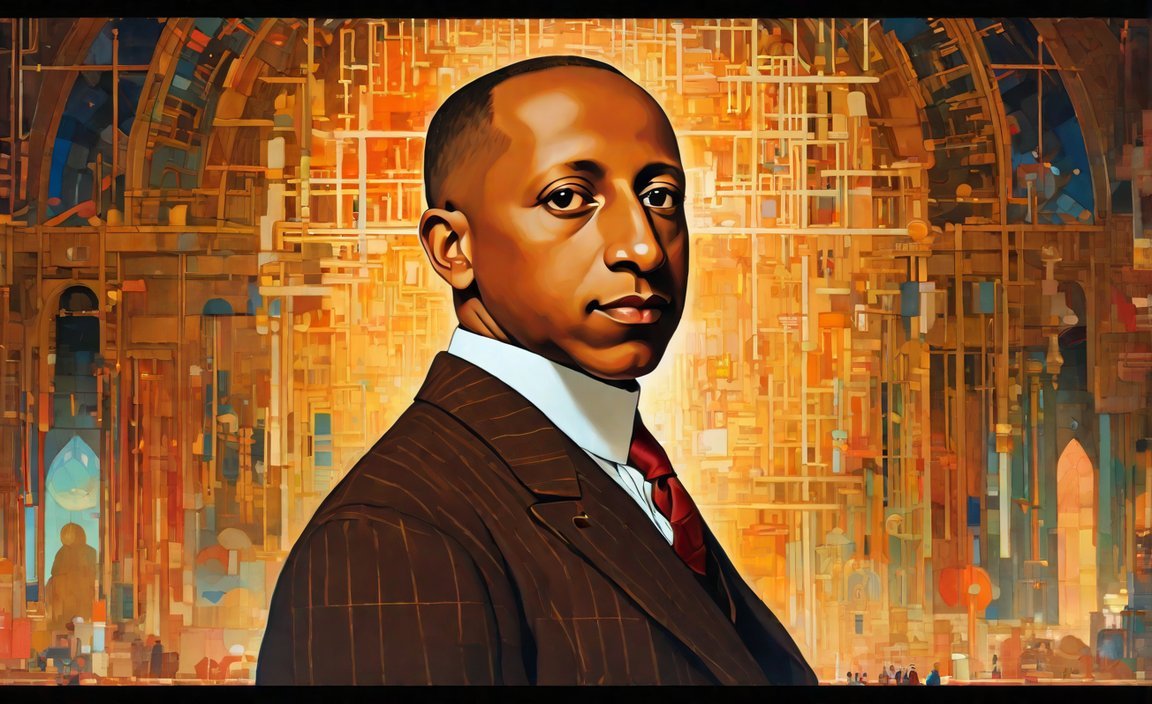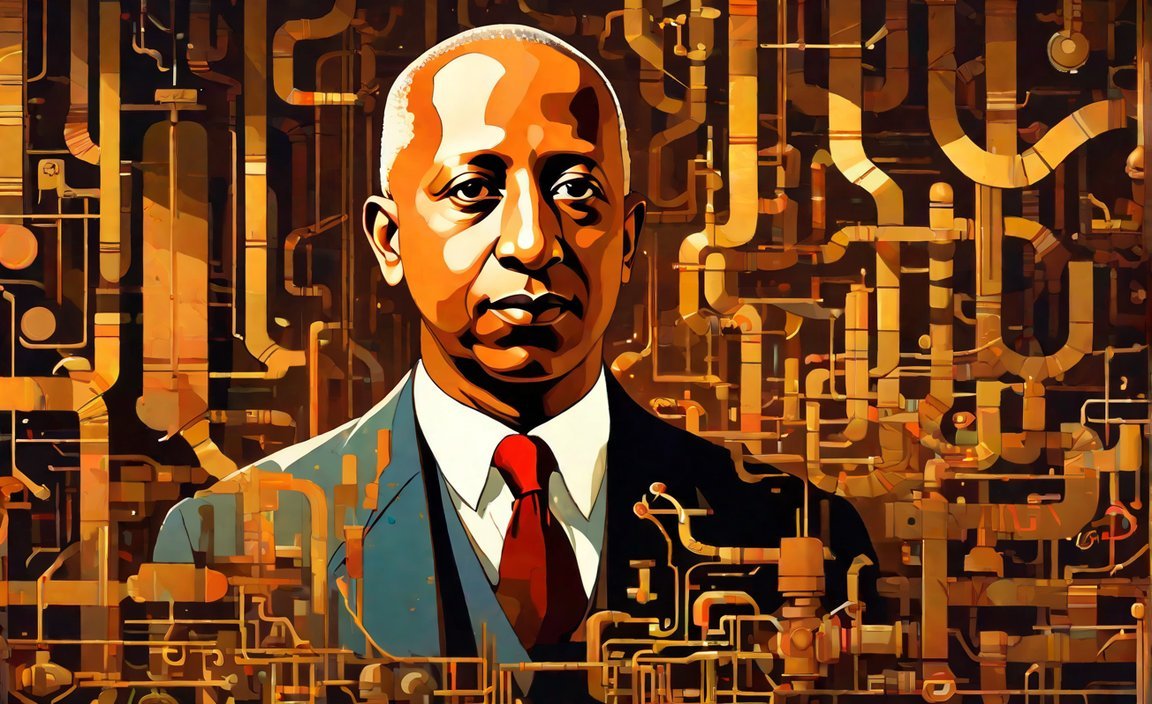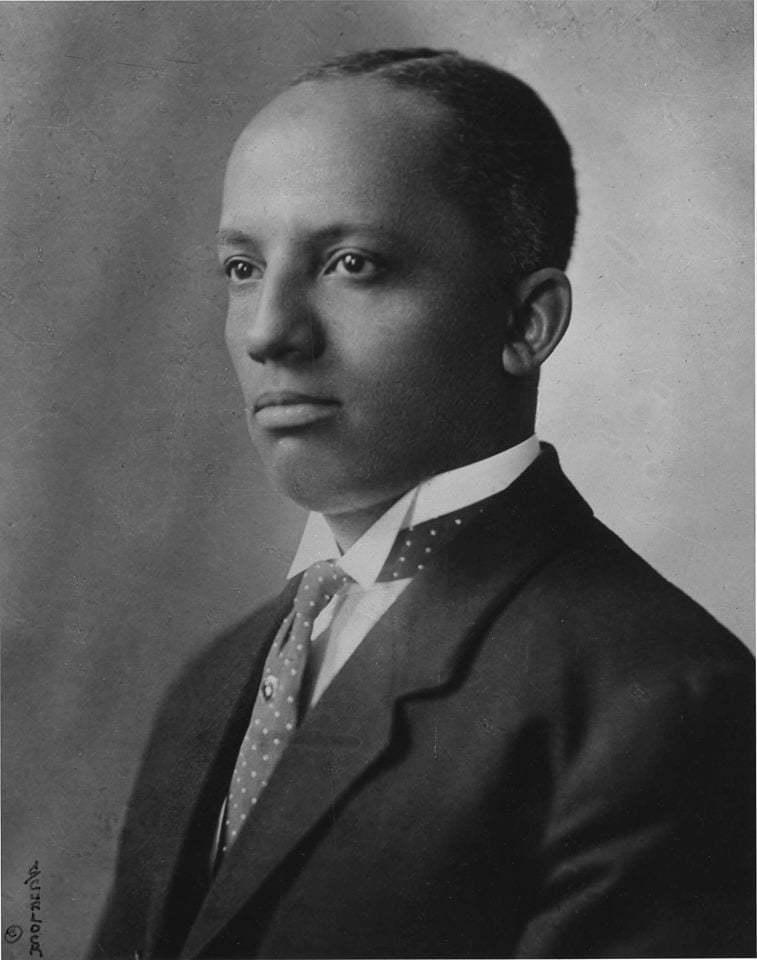Delve into the life and legacy of Carter G. Woodson, a trailblazing figure in African American history. Known for his remarkable achievements and invaluable contributions, Woodson’s work continues to inspire and empower generations. In this article, we will uncover 10 intriguing facts that shed light on the extraordinary journey of this African American history pioneer. From his profound quotes to his groundbreaking accomplishments, prepare to embark on a fascinating exploration of Carter G. Woodson’s enduring impact on American history.
Key Takeaways:
1. Carter G. Woodson was born on December 19, 1875, in Buckingham County, Virginia, to former slaves.
2. Despite coming from a poor background, Woodson managed to educate himself and excel academically.
3. He received his diploma from Douglass High School at the age of 20.
4. Woodson graduated from Berea College in Kentucky in 1903 and continued his education.
5. Woodson played a crucial role in establishing the Journal of Negro History in 1915.
6. He co-founded the Association for the Study of Negro Life and History in the same year.
7. Woodson authored books, including his influential work “The Mis-Education of the Negro.”
8. Woodson established what is now known as Black History Month in 1926.
9. He received both his bachelor’s and master’s degrees from the University of Chicago and was the second African American to obtain a doctorate.
10. Woodson’s contributions are honored through a U.S. postage stamp and the Carter G. Woodson National Historic Site in Washington, D.C.
10 Facts about Carter G. Woodson

Carter G. Woodson, the man affectionately known as the “Father of Black History,” was a visionary scholar, author, and activist who dedicated his life to documenting, preserving, and celebrating the rich history of African Americans. Born into a family of former slaves in Virginia, Woodson overcame immense challenges to become one of the most influential figures in the field of African American history.
Early Life and Education
- Humble Beginnings: Born on December 19, 1875, in Buckingham County, Virginia, Carter G. Woodson was the seventh of nine children born to James and Eliza Riddle Woodson, both former slaves. Despite growing up in poverty, Woodson possessed an unwavering determination to learn.
- Overcoming Adversity: Despite limited access to education for African Americans during that time, Woodson persevered and excelled in his studies. He mastered important subjects by the age of 17 and attended Douglass High School for two years, eventually receiving his diploma in 1895 at the age of 20.
- A Life of Learning: Woodson’s pursuit of knowledge was boundless. He graduated from Berea College in Kentucky in 1903 with a Bachelor of Literature degree and continued to take part-time classes to further his education.
Pioneering Scholar and Author
- Championing African American History: In 1915, Woodson made a significant contribution to the field of African American history by establishing the Journal of Negro History, a platform to highlight the accomplishments and contributions of Black Americans.
- Fostering Understanding: Woodson co-founded the Association for the Study of Negro Life and History (ASNLH) in the same year. This organization aimed to promote scholarly research and study in the field of African American history, encouraging understanding and appreciation for the accomplishments of Black Americans.
- A Prolific Voice: Woodson’s influence extended beyond academia as he became a prolific author, making significant contributions to African American history through his written works. One of his most notable books, “The Mis-Education of the Negro,” published in 1933, shed light on the impact of a flawed education system on African Americans.
Establishing Black History Month
- A Legacy of Recognition: Woodson’s most enduring contribution is the establishment of Negro History Week in 1926, an initiative that later evolved into Black History Month. This annual celebration honors the important contributions of African Americans to American history and society.
- Educational Excellence: Woodson’s educational achievements are noteworthy. He received both his bachelor’s and master’s degrees from the University of Chicago and became the second African American to earn a doctorate, following in the footsteps of W.E.B. Du Bois.
Honoring a Trailblazer
- A Life of Impact: Woodson’s contributions to African American history have been widely recognized and honored. In 1984, he was commemorated with a U.S. postage stamp, and his legacy lives on through the Carter G. Woodson National Historic Site in Washington, D.C.
- A Beacon of Inspiration: Carter G. Woodson’s life and work serve as an inspiration to all who seek to understand and appreciate the rich heritage and accomplishments of African Americans. His unwavering dedication and commitment to preserving Black history have left an indelible mark on American society.
Conclusion
Carter G. Woodson’s legacy extends far beyond the realm of academia. His tireless efforts to document, preserve, and celebrate African American history have transformed the way we understand and appreciate the contributions of Black Americans to American society. Woodson’s unwavering commitment to truth, justice, and equality serves as a beacon of hope and inspiration for generations to come.
- 3 interesting facts about George Washington Carver
- Mary Shelley interesting facts
- Robert Frost interesting facts
- Accountant interesting facts
Try clicking on these links to explore more about these fascinating topics!
Carter G Woodson Quotes
Key Takeaways:
– Carter G. Woodson, also known as the “Father of Black History,” was an influential African American writer, historian, and educator.
– Woodson’s work focused on promoting the recognition and understanding of black history in the United States.
– He founded the Journal of Negro History and the Association for the Study of Negro Life and History to advance the study and research of African American history.
– Woodson believed that understanding black history was crucial for cultivating empathy and working towards social justice.
– His notable book, “The Mis-Education of the Negro,” explores the impact of the American education system on perpetuating oppression and limited opportunities.
– Woodson’s quotes continue to inspire and challenge readers to question societal norms and prejudices.
– He established Black History Month in the United States, emphasizing the importance of African American history in mainstream education.
– Woodson’s dedication to shedding light on the often overlooked history of African Americans continues to inspire generations.
- Early Life and Education
- Woodson’s humble beginnings and determination to pursue education laid the foundation for his remarkable achievements.
- Despite financial challenges, he obtained a high school diploma and went on to earn a bachelor’s degree in literature from Berea College.
- Woodson’s thirst for knowledge led him to complete his master’s degree at the University of Chicago and become the second African American to receive a doctorate from Harvard University.
- Promoting Black History
- Woodson was a trailblazer in promoting the significance of African American history through his groundbreaking initiatives.
- He founded the Journal of Negro History in 1915 as a platform to challenge the notion that black history was inconsequential.
- Woodson aimed to showcase the contributions of African Americans to American society, fostering a deeper understanding across racial lines.
- Influential Book: “The Mis-Education of the Negro”
- Woodson’s book, published in 1933, critically examines how the American education system perpetuated the marginalization of African Americans.
- He argued that the exclusion of black history and achievements from the curriculum limited opportunities for African Americans and perpetuated a cycle of oppression.
- “The Mis-Education of the Negro” encourages readers to question the prevailing education system and actively pursue a more inclusive and accurate understanding of history.
- Impactful Quotes
- Woodson’s quotes resonate with readers and continue to shape conversations about race, education, and societal transformation.
- His quote, “If you can control a man’s thinking, you do not have to worry about his action,” highlights the importance of critical thinking and independent thought in combating oppression.
- Woodson’s quote, “No man knows what he can do until he tries,” emphasizes individual empowerment and the limitless potential of self-belief.
- Enduring Legacy and Recognition
- Woodson’s dedication led to the establishment of Black History Month in the United States, a time to celebrate and honor African American history.
- The Carter G. Woodson Book Award recognizes outstanding social science books that portray diversity and ethnicity in the United States.
- Woodson’s contributions as an educator and historian continue to be studied and celebrated, reminding us of the importance of inclusivity and understanding in shaping our society.
To delve deeper into the life and work of Carter G. Woodson, you can explore the following sources:
- “The Mis-Education of the Negro” – A collection of quotes from Woodson’s influential book on the Wikiquote page.
- “Carter G. Woodson: Quotes, Books & Facts” – Biography.com provides comprehensive information about Woodson’s life, books, and contributions as an educator and historian.
Woodson’s quotes and life story inspire us to challenge the status quo and strive for a more inclusive understanding of history. His remarkable journey and tireless efforts in promoting black history leave a lasting legacy that resonates with generations to come.
Carter G. Woodson Achievements
Carter G. Woodson, often referred to as the “Father of Black History,” was a remarkable figure whose achievements continue to shape our understanding of African American history. Let’s dive into 10 fascinating facts that highlight his significant contributions:
1. Early Life and Education
Born on December 19, 1875, in Buckingham County, Virginia, Woodson’s humble origins as the son of former slaves did not deter his thirst for knowledge. Despite the limited opportunities available to African Americans at that time, Woodson excelled academically from a young age.
2. Trailblazing Educator
Woodson’s commitment to education led him to become a high school principal in the United States before venturing abroad to serve as a school supervisor in the Philippines. His experiences in these positions allowed him to witness firsthand the impact of education on disadvantaged communities.
3. Sigma Pi Phi: Pioneering Fraternity Member
Woodson was a member of the first black professional fraternity, Sigma Pi Phi, also known as the Boule. This prestigious organization, founded in 1904, aimed to foster brotherhood and promote the advancement of African Americans.
4. The Journal of Negro History
In 1915, Woodson took a momentous step towards amplifying African American voices in academia by founding the Journal of Negro History. This groundbreaking publication served as a platform for scholars, particularly African Americans, to showcase their research on black history.
5. Setting the Stage for African American Historical Studies
Recognizing the overlooked contributions and suppressed history of African Americans, Woodson worked to establish a separate institutional structure for the study and preservation of black history. This vision led to the formation of the Association for the Study of African American Life and History (ASALH).
6. Black History Month: A Lasting Legacy
One of Woodson’s most notable achievements was the establishment of Black History Month in 1926. Originally known as Negro History Week, it aimed to raise awareness and promote the study of African American history in schools and colleges. Today, it remains a vital celebration of African American heritage.
7. Written Legacy
Woodson’s pen was as influential as his actions. He authored several influential books, including “The Mis-Education of the Negro.” In this pivotal work, he questioned the education system’s failure to provide African Americans with a comprehensive understanding of their history and culture.
8. Expanding Black Studies
Woodson’s relentless efforts to expand the field of black studies have made African American history more accessible to scholars and students. His contributions have played a crucial role in shaping curricula, empowering future generations to explore and embrace their heritage.
9. Enduring Inspiration
Even after his passing on April 3, 1950, Woodson’s work continues to inspire scholars, educators, and activists. His dedication to celebrating the historic contributions of Black people serves as a guiding force in the ongoing pursuit of equal rights and social justice.
10. Honoring a Legacy
Woodson’s lasting impact is recognized through a U.S. postage stamp issued in his honor and the Carter G. Woodson National Historic Site in Washington, D.C. These landmarks serve as reminders of his profound commitment to writing African American history back into the tapestry of our nation’s narrative.
Key Takeaways:
– Carter G. Woodson was a trailblazing educator who believed in the power of education to uplift communities.
– He founded the Journal of Negro History, providing a crucial platform for African American scholars.
– Woodson’s establishment of Black History Month emphasized the significance of African American history in mainstream education.
– His written legacy, including “The Mis-Education of the Negro,” continues to challenge educational norms.
– Woodson’s dedication to celebrating African American history inspires scholars, educators, and activists to this day.
Sources:
– HuffPost – 10 Things I Learned about Carter G. Woodson
– Britannica – Carter G. Woodson

FAQ
Q1: What is Carter G. Woodson known for?
A1: Carter G. Woodson is known as the “Father of Black History.” He made significant contributions to the field through his pioneering work in the study of African American history.
Q2: What are some famous quotes by Carter G. Woodson?
A2: One famous quote by Carter G. Woodson is, “If you can control a man’s thinking, you do not have to worry about his action.” Another powerful quote is, “No man knows what he can do until he tries.”
Q3: What were Carter G. Woodson’s achievements?
A3: Some of Carter G. Woodson’s achievements include establishing the Journal of Negro History, co-founding the Association for the Study of Negro Life and History, and creating what is now known as Black History Month. He also authored influential books, such as “The Mis-Education of the Negro.”
Q4: How did Carter G. Woodson contribute to African American history?
A4: Carter G. Woodson contributed to African American history by bringing attention to the contributions and achievements of Black Americans. He founded organizations, published research, and wrote books that shed light on the often overlooked history of African Americans.
Q5: How is Carter G. Woodson honored and remembered today?
A5: Carter G. Woodson is honored and remembered today through the celebration of Black History Month, the Carter G. Woodson Book Award, and the Carter G. Woodson National Historic Site in Washington, D.C. His dedication to promoting African American history continues to inspire scholars, educators, and activists.
- Sept 31 Myth: Unveiling Calendar Secrets - March 18, 2025
- How Long & Till December 18, 2025: Accurate Countdown Guide - March 18, 2025
- Discover Japanese Artists: A Complete History - March 18, 2025

















